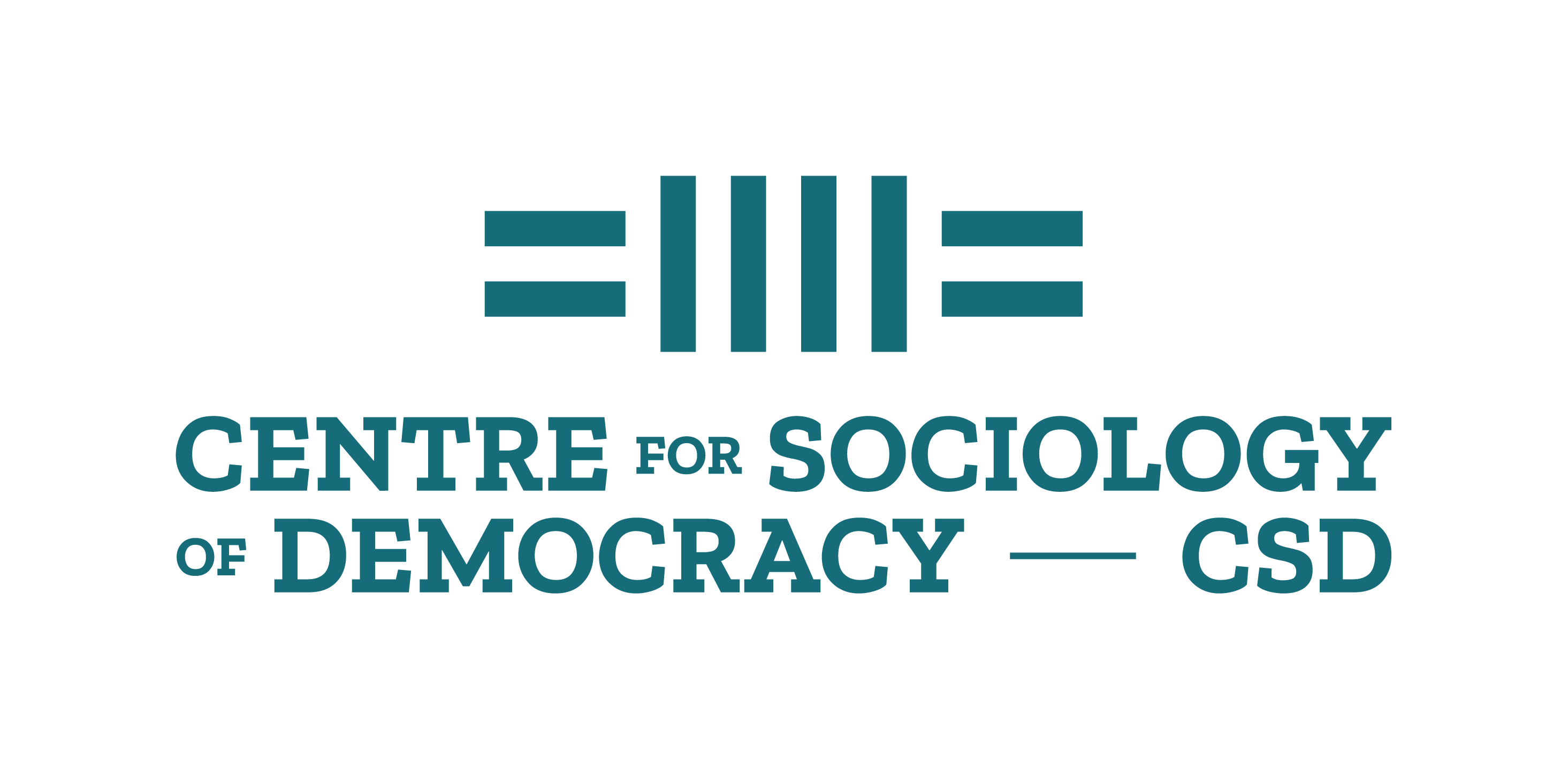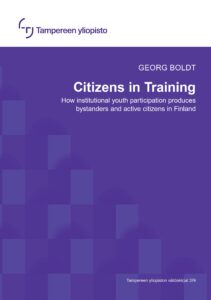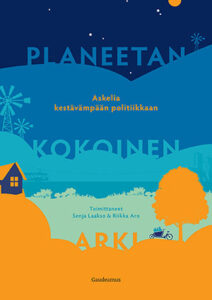
The Centre for Sociology of Democracy studies democracy in modern societies. Our projects deal with democracy from different perspectives and with different methods.
»
Recent News & Blog Posts
Activists participating in the environmental movement Elokapina see the sharing of images and videos in social media as a tool to tell people about daily protest activities, challenge the perceptions that people have of demonstrators and reach a wider audience for their message than would be possible through physical demonstrations. However, the personal nature of social media may also give rise to feelings of inadequacy and expose activists to strong negative attention.
In his dissertation Georg Boldt identified four individual level outcomes of youth participation.
Planeetan kokoinen arki auttaa ymmärtämään, miten moninaisilla tavoilla jokapäiväinen elämä, sitä määrittävä politiikka sekä taustalla vaikuttavat ajattelutavat kytkeytyvät ympäristökriiseihin.
In their article, Carla Malafaia and Taina Meriluoto explore how young activists in Portugal and Finland negotiate the value of social media in their practices.
The war in Ukraine and its refugees have evoked a wave of compassion among Europeans, to an extent that has not been seen with people fleeing the war in Syria, for instance. An overview of social media content illustrating the war helps us understand how the visualisation of the war influences people’s perceptions and attitudes towards Ukrainians. By emphasising the Europeanness of Ukraine, the threat posed by Russia and the clear moral set-up of the war, the images bring Ukrainian fates closer and make them grievable.
In his article, Georg Boldt examines the genealogy of democratic participation.
In their article, Georg Boldt and Veikko Eranti look at a particular channel for youth participation and democracy education,
meant to provide avenue for young people to present their ideas for the development of their
surrounding society.
In their article, Tuukka Ylä-Anttila, Veikko Eranti and Anna Kukkonen examine media debates on climate change in India and the United States.
A mixed-methods study by Tuukka Ylä-Anttila, Veikko Eranti and Sam Hardwick investigates politics on Overboard, a Finnish imageboard.
In his article, Tuukka Ylä-Anttila assesses the significance of social media for the Finns Party and the related anti-immigration movement from 2007 to the present day, in light of theories on the relationship of populism and social media.
Everyday, local, public: in search of young people’s understanding of democracy
In their article, Georg Boldt and Veikko Eranti look at a particular channel for youth participation and democracy education, meant to provide avenue for young people to present their ideas for the development of their surrounding society.

This chapter looks at a particular channel for youth participation and democracy education, meant to provide avenue for young people to present their ideas for the development of their surrounding society. The chapter asks, what are the ideas the young people present about, and what kind of political culture the justifications given for these ideas reveal. We use the concept of Citizen Imagination to ask, which types of issues seem actionable for the young people. The data consists of ideas submitted through the Nuortenideat.fi website. The ideas are most commonly about local issues, such as sport facilities, schools, and public transportation. A striking number of the justifications are technical in nature: minor upgrades to existing infrastructure, often clearly linked to the private interests of the people presenting the idea. Finally, the chapter asks, what type of democracy is realized through this service – and thus taught to the young people using the service.
The article is published open access and is available here.








